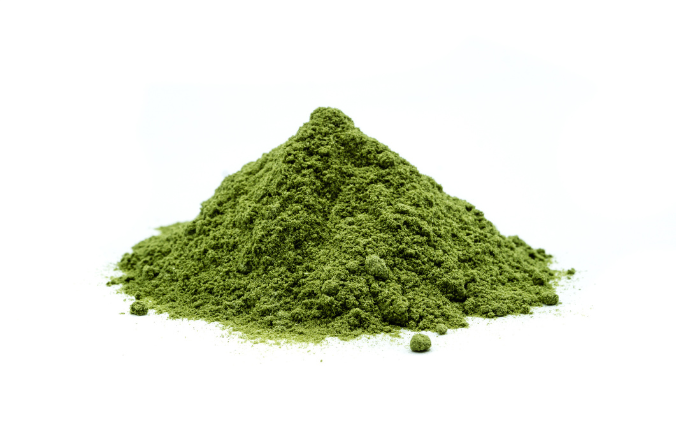Health Benefits of Chlorella

When someone says the word ‘algae’ the first thing that springs to mind isn't always its health benefit; but within the algae world is a little green superhero called Chlorella.
What is Chlorella?
Chlorella is a single-celled organism that has a nutrient profile that is packed with the power of a whole garden. This freshwater algae boasts a green pigment called chlorophyll, giving it its vibrant colour and hinting at its nutritional value. Sometimes referred to as freshwater seaweed, a genus of the chlorophyta family, Chlorella contains protein, vitamins, minerals, antioxidants and even fibre.
Why is Chlorella good for you?
The earliest records of research around the health benefits of chlorella date back to World War II. Originally considered as a potential protein alternative, Chlorella is largely considered to be a health-boosting superfood. While research is ongoing some of the number of potential health benefits associated with Chlorella are: Supports Detoxification
Chlorella is believed to bind the heavy metals and toxins in the body, making it easier for the body to isolate and eliminate them.
Boosts Immunity
Chlorella is packed with antioxidants and nutrients such as omega-3, vitamin C and carotenoids such as lutein. These molecule constructs all support a healthy immune system.
Elevates Energy
Packed with Vitamin B and iron, it is widely believed that Chlorella will give your energy levels a boost.
Digestive Aid
Surprisingly, this algae is rich in fibre. Chlorella, through its fibre content, helps to support a healthy digestive system.
Blood Sugar Regulator
Early studies suggest that chlorella may help to regulate your blood sugar levels, which is a key aspect when looking to manage diabetes.
What food have Chlorella in?
Unfortunately, incorporating chlorella naturally through your diet alone is incredibly challenging. While trace amounts of chlorella can be found in seaweed and some selected green vegetables such as nori, generally the only way to consume significant amounts of chlorella is through supplementation, with products like Skin Perfecting Complex.
Is Chlorella the same as Spirulina?
Both chlorella and spirulina are green algae powerhouses, but for all of their similarities, they belong to different species with slightly varying nutrient profiles.
Spirulina has higher levels of iron and beta-carotene, while Chlorella boasts more protein and omega-3 fatty acids. Ultimately determining which algae type is best for you is decided based on your dietary and lifestyle needs.
Does Chlorella help with menopause?
Menopause brings an array of challenges, with many women experiencing hot flushes, fatigue, mood swings and imbalanced skin among other symptoms. There has been extensive research into how chlorella might positively impact the symptoms of menopause, however, as with many things, more research is needed to confirm the true effectiveness.
If you are looking for ideas on how to tackle menopause symptoms naturally, we’ve written a handy blog on it here.
What is a safe daily Chlorella dosage?
If you are looking to add a new dimension to your daily nutritional intake, you might be wondering whether you should be taking chlorella daily, and what level of intake you should be taking.
The good news is that chlorella is widely believed to be safe to consume daily when the dosage is carefully managed.
Scientific research on the impacts of chlorella on the body has largely been focused around small doses (1.2 grams to 3 grams); so if you are going to consume chlorella via supplementation, you should look to start with low doses, and only increase with the consideration of how your body reacts.
While the little green warrior, Chlorella, holds the promise of a potentially beneficial supplement, it shouldn’t be seen as a magic wand. A balanced diet, regular exercise, and a healthy lifestyle are the cornerstones of well-being.
If you’d like to learn more about how to build the habits of a healthy lifestyle through food, you can read more here.





